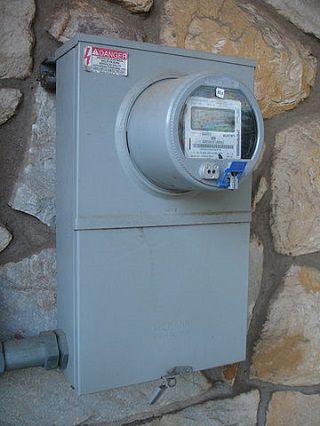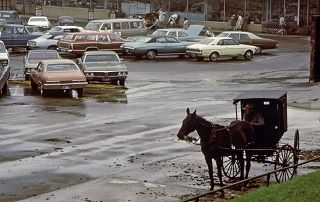From Guest Blogger Mary Ann Keel: Transforming Your Home To Be More Energy Efficient



From the video: “We will either be remembered as the generation that destroyed its home, or the one that finally learned to respect it.” That’s great writing, and it’s so true.

Sorry to be a wet blanket, but this does very little to take us in the direction of sustainable transportation. Looking at this from 50,000 feet, we still have what we did 75 years ago: a 4,000-pound hunk of steel that burns a fossil fuel that’s growing ever-scarcer and more environmentally unfriendly by the day–with an average of 15% efficiency. This hunk of steel is parked an average of 23 hours a day, and carries an average of 0.25 passengers during the one hour it’s used daily.
And we’re to believe that the most important innovation, during this time when humankind is just now realizing that consuming fossil fuels is devastating our planet is…..getting rid of the driver??? How about getting rid of the gasoline? Or the car? The driverless car is good news for the oil companies and the auto OEMs (imagine that…), but it’s certainly not for the remaining seven billion of us.


Newscaster: According to a recent poll, one-quarter of Americans are skeptical that climate change exists, or believe that concerns are exaggerated.
Oliver: Who gives a *&^%? And whose idea was it to survey Americans on matters of fact? That’s like asking people’s opinion on whether 5 is a bigger number than 15, or if owls exist. All this means is that one-quarter of Americans are incorrect. And how newsworthy is that?

By coincidence, I’m having lunch tomorrow with my friend Wally Rippel (pictured), an extremely senior scientist in this space. In 1968, Wally represented Caltech in the Sunracer project, pitting his school against MIT in a contest to determine who could build the better electric vehicle. 46 years later, Wally’s still making important refinements in the conversion of electrical to mechanical energy and vice versa.

Wow, that’s some seriously flawed logic. Cars have risen to dominate horse-drawn buggies. Does he expect a resurgence in the latter? I’m sure glad this guy isn’t managing my money.

Note the tone of this masterpiece: it’s not about scaring the viewer, or calling out the bad guys, or placing blame on piggish consumers; it’s about pure love and hope. Incredible.
At the end of the day, I think the dude is right, and, in fact, this is essentially the message I’m communicating in my new book “Bullish on Renewable Energy – Eleven Reasons Why Clean Energy Investors Can’t Lose,” i.e., humankind is well-positioned to emerge victorious in the most important challenge it’s ever faced.

French investment bank Kepler Chevreux has produced a fascinating analysis that has dramatic implications for the global oil industry.
It estimates that $100 billion invested in either wind energy or solar energy – and deployed as energy for light and commercial vehicles – will produce significantly more energy than that same $100 billion invested in oil. (more…)

There have been various attempts to enhance the usage of renewable energy across UK. One of the best examples is of the Feed-in Tariffs. A scheme which went live in April 2010 accelerated the installation of renewable energy capacity in Europe. And now comes the more effective, the Renewable Heat Incentive (RHI) which was launched in April 2014. Through this scheme, who make use of renewable energy to heat their buildings are awarded financially. (more…)